
In 2024, Turning Off Two Factor Authentication From iPhone 13? 5 Tips You Must Know

Turning Off Two Factor Authentication On Apple iPhone 13? 5 Tips You Must Know
Apple has produced one of the most consumed, acknowledged, and preferred smartphones that allowed them to rule the industry for a considerably long period of time. Their style and presentation were not the only reason that made people look forward to buying an iPhone. Apple created its own operating system and presented their own versions of security and protection. One of the most recognized and impeccable features offered by Apple in its innovative structure was the security and safety through Apple ID and Apple Account. Every important feature that operated throughout the Apple iPhone 13 or iPad was focused over a single entity, the Apple ID. However, apart from the Apple ID, there were several other layers of authentications and verifications that were added throughout the protocol structure. A couple of them are renowned as Two Factor Verification and Two Factor Authentication. This article produces a very generous set of advice that should be looked over while handing these layers of protection. To get a better understanding of the procedures involved, you need to look over the guide to gain better knowledge on how to turn off Two Factor Authentication on your Apple.

Part 1. Is two-step verification the same as two-factor authentication?
There might be a few differences involved in these two security models; however, it should be kept in mind that they focus their purpose on securing the Apple ID of the user. Two Factor Verification is a security protocol that protects access to the various activities performed through the Apple ID. It attenuates an extra verification step across the Apple iPhone 13 device in addition to the password for the Apple ID. The device receives a verification code from an authentication factor that allows the authorities to confirm the credibility of the user.
The Two Factor Authentication is considered as an upgrade to the Two Factor Verification, which was released two years after the Two Factor Verification, in 2015. This authentication method exempted the offline recovery keys and application-specific passcodes. They added a six-digit authentication code onto the original password and produced an offline, time-dependent code that is to be generated through the Settings of the trusted device of the user. This feature was appended into the iOS 9 and OS X El Capitan with a region-specific target.
Part 2. How to turn off two-step verification?
As you are aware of the Two-Step Verification process, it is quite easy and typical in configuring. However, when it comes to turning the settings off, it is also a simple and straightforward procedure that can be easily covered by following the steps provided below.
Step 1: You are required to open the Apple ID Account web page on your browser and sign in with your Apple ID credentials.
Step 2: As you log into the website, access the “Security” section, and tap “Edit” from the options provided on the list.
Step 3: Tap on the “Two-Step Verification” option and turn it off. Confirm to conclude the process. You may be required to select the new security questions and verify the data of birth in the process. As you would be done with it, an email would be received across your connected address for confirmation.
Part 3. How to turn off two-factor authentication? (lower than iOS 10.3)
Two Factor Authentication cannot be turned off in a few cases and accounts for iOS versions greater than 10.3. However, if you have activated Two Factor Authentication across the iOS versions lower than 10.3, you can deactivate the feature through a series of simple steps. The exemption of this security feature across your device leaves it protected only through a password and a few security questions. For turning off the Two Factor Authentication from your Apple device, you need to follow the steps provided as follows:
Step 1: Open your browser and access your Apple ID Account website. Provide the details of your Apple ID and log in.
Step 2: Tap on “Edit” in the “Security” section and turn off the “Two Factor Authentication” option.
Step 3: This would lead you to set new security questions for the Apple ID account, followed by a verification of your date of birth. The successful execution of the process would lead to turning it off.
Part 4. Why can’t you turn off two-factor authentication if you already use it? (iOS 10.3 and later)
For users who have an Apple device with an iOS 10.3 or later version, they cannot turn the Two Factor Authentication off after it is accessed. The latest iOS and macOS included extra layers of security in their features, which led towards a better security foundation and protection of information. Users who have updated their account information can unenroll in two weeks after updating. For this, you are required to simply access the confirmation email that you have received and tap on the link to approach the previous security settings. Thus, it makes it far more than impossible for users to turn their Two Factor Authentication off if they consider it unnecessary for their device. This feature is something that would always remain intact with their device as an extra layer of security. Its absence does leave a chance of illegal access to the Apple iPhone 13 device and an increased risk of a security breach. Since it is directly built across the Apple iPhone 13 device and its settings, this makes it a very hard-to-approach characteristic.
Part 5. How to turn off two-factor authentication by removing Apple ID
Users who are very reluctant to remove the two-factor authentication off their device can consider removing the Apple ID itself for fulfilling the purpose. However, when it comes to executing such tasks, the need for a third-party platform gets evident. Third-party platforms provided dedicated services in providing users with a unique platform of operation with an environment that suits their purpose perfectly. Many platforms provide such impressive services, yet the selection gets quite difficult for a series of reasons. The following pointers explain the reasons to the users over why they should focus on selecting a platform such as Dr. Fone – Screen Unlock (iOS) for this purpose.
- You need to have no excessive knowledge of handling the platform.
- You can cover all the dynamics of unlocking the Apple iPhone 13 device without the use of iTunes.
- The platform provides you with the ability to unlock the passcode of your Apple device with ease.
- It offers you to protect your device from the disabled state.
- Works across all models of iPhone, iPad, and iPod Touch.
- Provides services to the latest version of iOS.
Dr. Fone – Screen Unlock (iOS) makes it easy for the users to control and remove their Apple ID and disable the two-factor authentication across their device. However, when it comes to controlling the platform, it follows a few simple and efficient steps that would guide you in executing the task successfully.
Step 1: Connect your Device and Launch Application
You need to connect your Apple device with the desktop and launch Dr. Fone across the computer. Tap on the “Screen Unlock” tool present on the home window and proceed with the removal of two-factor authentication.

Step 2: Access Appropriate Option
On the next screen that opens, you are required to select “Unlock Apple ID” from the three options. Proceed to your Apple device to take the process further.
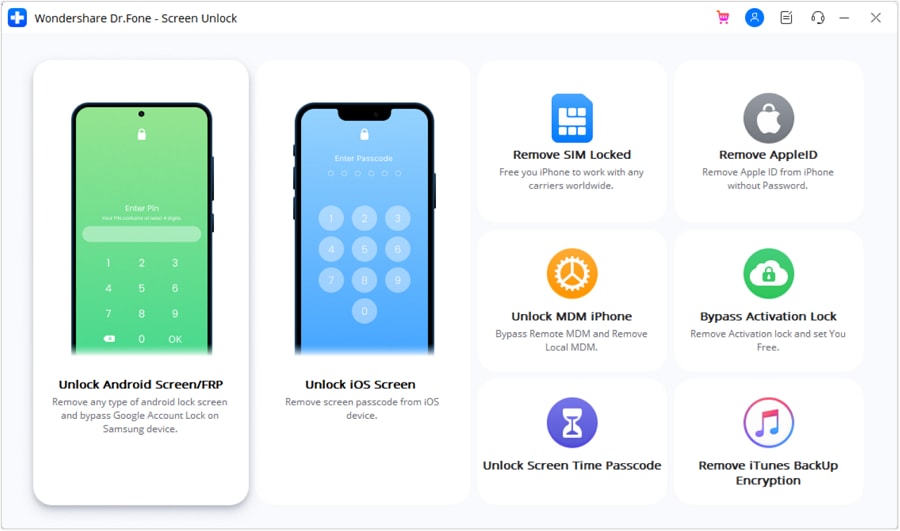
Step 3: Trust the Computer
Open the Apple iPhone 13 device and tap on “Trust” over the prompt that appears on the screen. Following this, you need to navigate to the Settings of your device to initiate a reboot.
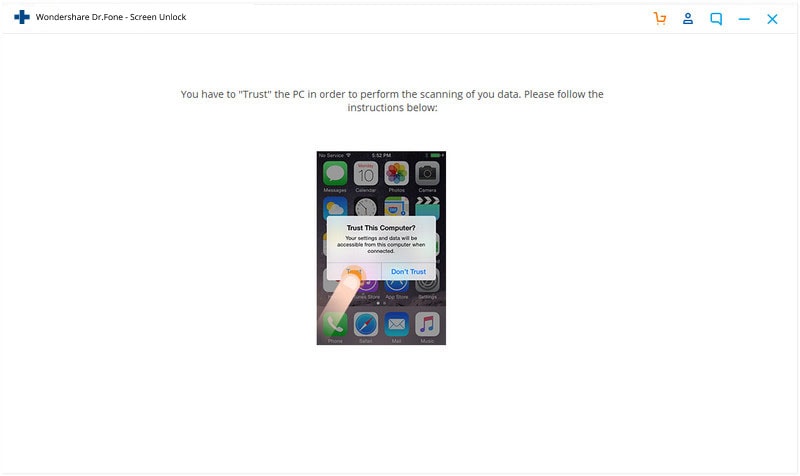
Step 4: Execution of Process
Once you are done with initiating a reboot, the platform automatically detects the update in the process and initiates removing the Apple ID from the Apple iPhone 13 device. Once the platform is done with the process, it provides a prompt message in the next window displaying the execution of the removal of Apple ID from your device. This also removes the Two Factor Authentication off your device.
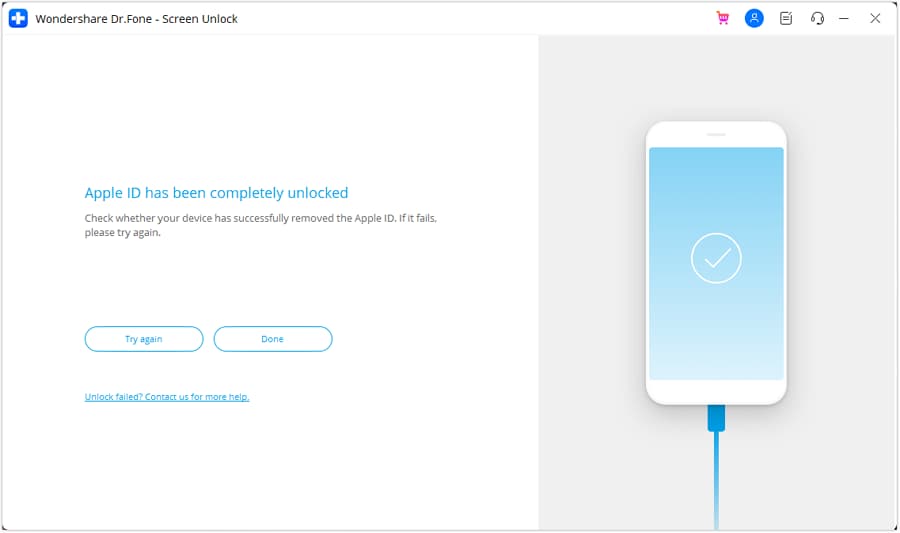
Conclusion
The article has presented a very detailed comparison of the Two Factor Verification and Two Factor Authentication and provided an elaborated discussion over how to turn these security features off their devices. The article also discussed a third-party platform that would guide in removing such security features of the Apple iPhone 13 devices over the requirement of the user. You need to go through this article to get a better knowledge of the execution of the mechanism.
How to Delete iCloud Account On Apple iPhone 13 without Password?
If you own various Apple products, you must be familiar with the significance of iCloud service. iCloud is a cloud storage service that allows Apple users to sync their data and access it across different Apple devices, be it iPhone, iPad, or Macbook.
Now, there are several situations where a user might want to delete their iCloud account, especially when one has created too many iCloud accounts and don’t remember the passwords to all of them.
So, in this guide, we’re going to share some insight into how to delete iCloud account without password so that you can get rid of all the unnecessary accounts and use a single one across all your iDevices.
Part 1: How to delete iCloud account without password on iPhone?
If you have an iPhone at the moment, here are three different ways to delete an iCloud account using your phone itself.
1.1 Remove iCloud from settings on iPhone
Follow these instructions to delete the iCloud account from the “Settings” menu on your Apple iPhone 13.
Step 1: Open “Settings” and scroll down to click on “iCloud”.
Step 2: You’ll be asked to enter your password. Here enter any random number and click “Done”.
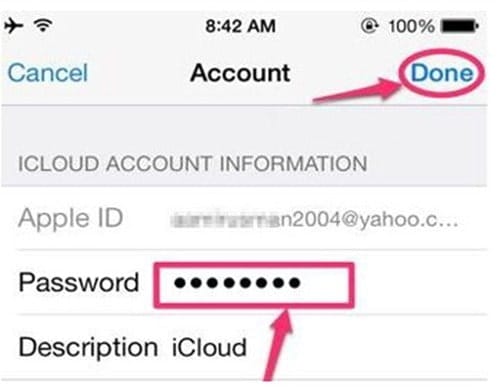
Step 3: iCloud will tell you the password is incorrect. Tap “Ok” and you’ll be prompted back to the iCloud screen.
Step 4: Now, click on “Account” and erase everything from “Description”. Click “Done” and you’ll again go back to the iCloud screen. This will disable the “Find My iPhone” feature and you’ll be able to remove the iCloud account easily.
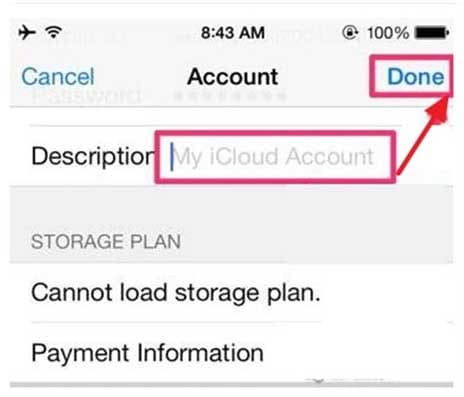
Step 5: Again, tap on iCloud and scroll down till the end. Tap “Delete Account” and again click “Delete” to confirm your action.

That’s how to delete iCloud account without password directly from “Settings” on your Apple iPhone 13.
1.2 Delete iCloud account via iTunes
Another convenient way to delete the iCloud account is to use iTunes on your Apple iPhone 13. Let’s walk you through the process of deleting an iCloud account using iTunes.
Step 1: First of all, make sure to disable the “Find My iPhone” feature. Navigate to “Settings” > “iCloud” > “Find My iPhone” and toggle the switch off to turn off the feature.
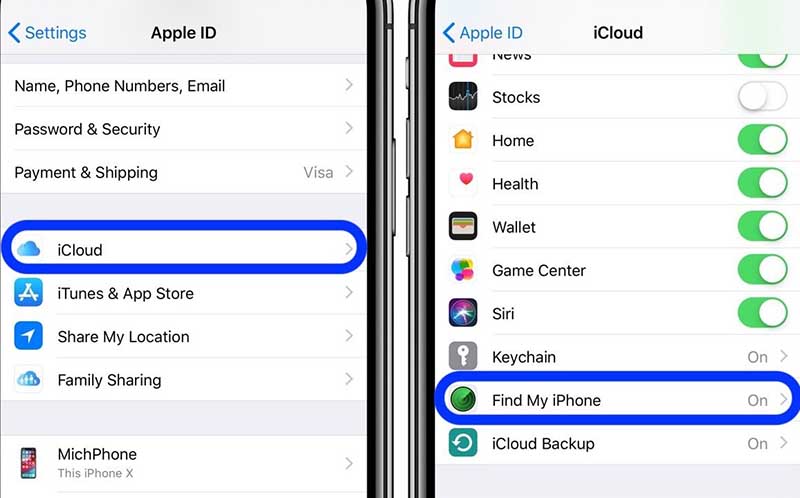
Step 2: Now, go back to the “Settings” window and click “iTunes & App Store”.

Step 3: Tap on your “Account” at the top. A pop-up will appear on your screen. Here, click “Sign Out” and the iCloud account will be removed from your iDevice.
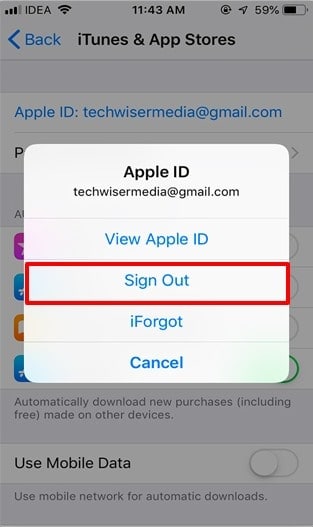
1.3 Create a new password
If you have enabled two-way verification on your Apple iPhone 13, you can also delete the iCloud account by resetting the password. In this case, however, you’ll have to visit the Apple ID Account Page and use it to reset the password.
Here’s how to delete iCloud account without password by creating a new password.
Step 1: Visit the Apple ID Account page and select “Forgot Apple ID or Password”.
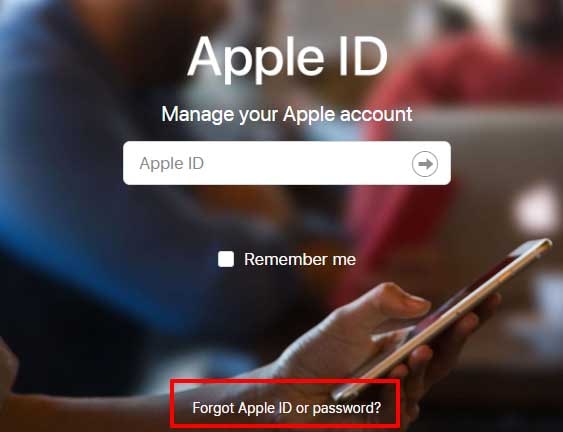
Step 2: Now, enter your Apple ID and tap “Continue”. Select “I Need to Reset My Password” to initiate the password resetting process.
Step 3: You’ll be prompted to a new window where you’ll have to enter the “Recover Key”. This key is an exclusive that’s generated when a user enables two-way verification for their iCloud account.
Step 4: Enter the recovery key and tap “Continue”. Now, select a trusted device where you want to receive the verification code. Enter this verification code to continue with the process.
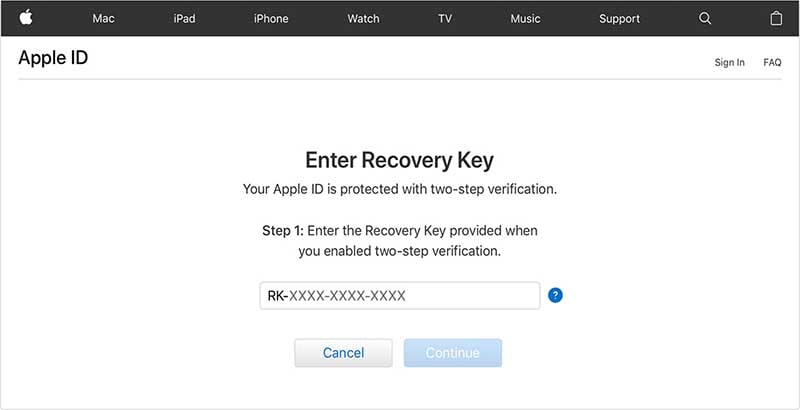
Step 5: In the next window, you can reset the password. Simply, add the new password and click the “Reset Password” button.
Once the password is changed, you can easily delete your iCloud account by going to “Settings” > “iCloud” > “Delete Account”. Enter the new password and your iCloud account will be deleted permanently.
In case you haven’t enabled two-way verification for your iCloud account, there’s still a way to reset the password. However, you must remember the security questions that you answered or the recovery e-mail you had added while setting up your iCloud account.
Step 1: Open the Apple ID Account page and tap “Forgot Apple ID or Password”. Enter your Apple ID and select “I need to reset my password”.
Step 2: You’ll be redirected to a new window displaying two different methods, i.e., “Answer Security Questions” an “Get an Email.” Choose a suitable method and follow the further steps to reset your password.

Part 2: How to delete iCloud account without password on computer using Dr.Fone - Screen Unlock (iOS)?
If you find all the above methods slightly challenging, we have a simpler solution for you. Wondershare Dr.Fone Screen Unlock (iOS) is an exclusive tool for iOS users that’ll help them remove screen locks and delete iCloud accounts from an iDevice, even if you don’t remember the password or even if the “Find My iPhone” feature is enabled.
Thanks to its user-friendly interface, it’ll become a hassle-free task to delete the iCloud account using Dr.Fone Screen Unlock. Since the software is available for Windows as well as Mac, one can easily use it to bypass Apple ID sign-in, irrespective of the OS one’s using on their PC.
So, let’s quickly discuss how to delete iCloud account without password using Dr.Fone Screen Unlock.
Note: Before moving further, make sure to back up the entire data as this will erase everything from your Apple iPhone 13.
Step 1: Launch Dr.Fone Screen Unlock
Install Dr.Fone Screen Unlock on your PC and double-tap its icon to launch the software. Now, connect your iDevice to the computer using a USB cable.
Step 2: Select Screen Unlock
Now, in the main interface of Dr. Fone Screen Unlock, select “Screen Unlock”.

Step 3: Choose the Option
In the next window, you’ll see three different options. Select “Remove Apple ID” as we want to delete the iCloud account.

Step 4: Trust the Apple iPhone 13 device
Now, to successfully establish the connection between the two devices, enter the passcode on your iDevice and tap the “Trust” button to confirm the connection.

Step 5: Reset Your Apple iPhone 13
Once the two devices are successfully connected, tap “Unlock Now” on your computer screen. This will trigger a warning message. Click “Unlock” to continue with the process.

At this point, you’ll be asked to enter recovery mode. You can follow the on-screen instructions to successfully enter recovery mode.
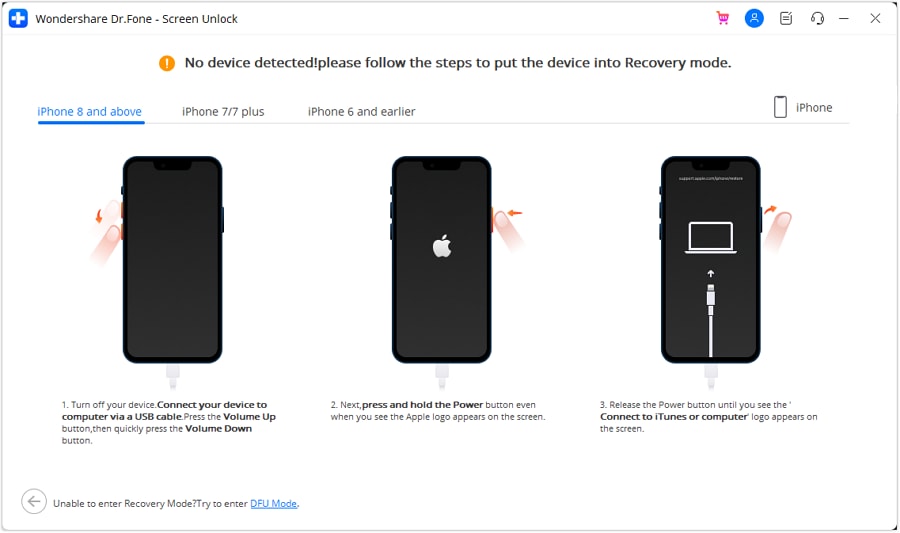
Step 6: Unlock Apple ID
After entering the recovery mode, Dr.Fone will automatically initiate the unlocking process. Do not disconnect the iDevice from your computer as this can cause damage to the Apple iPhone 13 device itself.
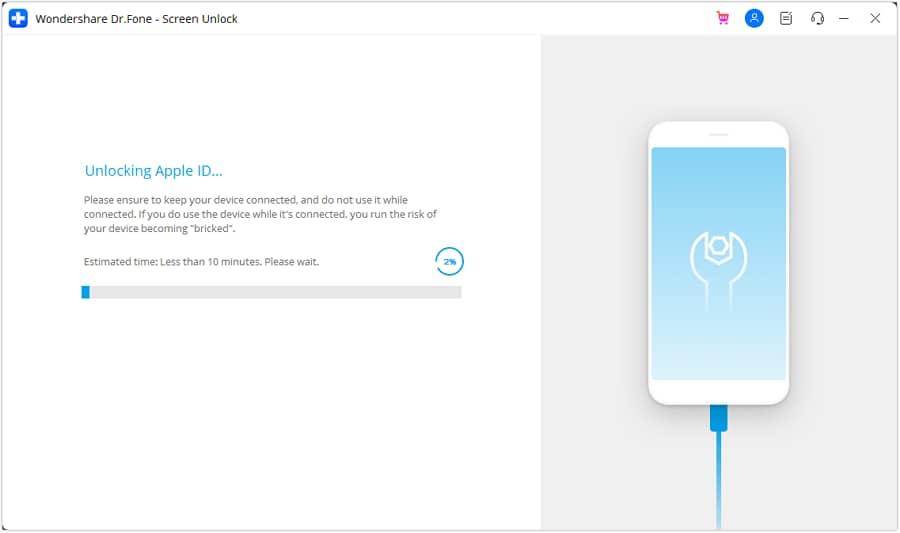
As soon as your Apple ID gets unlocked, a confirmation message will pop up on your screen. Simply reboot your smartphone and you’ll be able to sign in with a new Apple ID without any hassle.

It doesn’t matter if you’re using Windows or Mac, Dr.Fone – Screen Unlock for iOS will make it extremely easy to delete the iCloud account without the password. So, if you are looking for a reliable and convenient way to remove an iCloud account, make sure to use Dr.Fone – Screen Unlock.
Conclusion
That’s the entire guide on how to delete iCloud account without password. Even though iCloud is an exceptional feature, one is likely to forget the password to his iCloud account. If you’re stuck in a similar situation and want to create a new iCloud account, make sure to use the above tactics to delete the previous iCloud account, even if you don’t remember the password.
Tips and Tricks for Apple ID Locked Issue On Apple iPhone 13
An Apple ID is a crucial gateway to Apple’s ecosystem. An Apple ID grants access to iCloud, the App Store, and more. However, the frustration of dealing with a disabled Apple ID can be overwhelming. The article below provides essential tips and tricks to unlock Apple ID successfully.
The page discusses common reasons for lockouts, steps to regain access, and proactive measures to prevent future issues. Don’t let your locked Apple ID stress you out. Follow the expert advice by exploring the article to resolve it. Enjoy uninterrupted access to your Apple services.
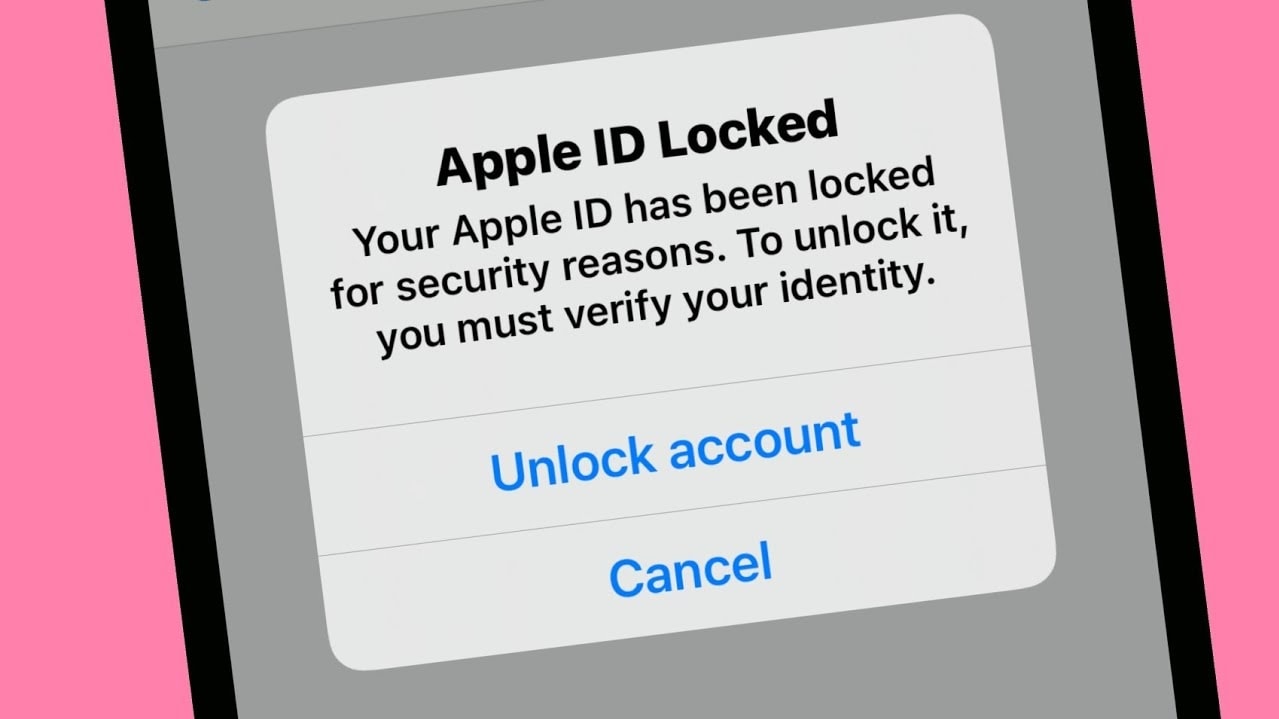
Part I. Common Reasons Why Apple ID Gets Disabled
Apple ID lockouts can be a frustrating experience. Understanding the reasons behind them can help you easily prevent and resolve these issues. Here are the most common causes of Apple ID disablement:
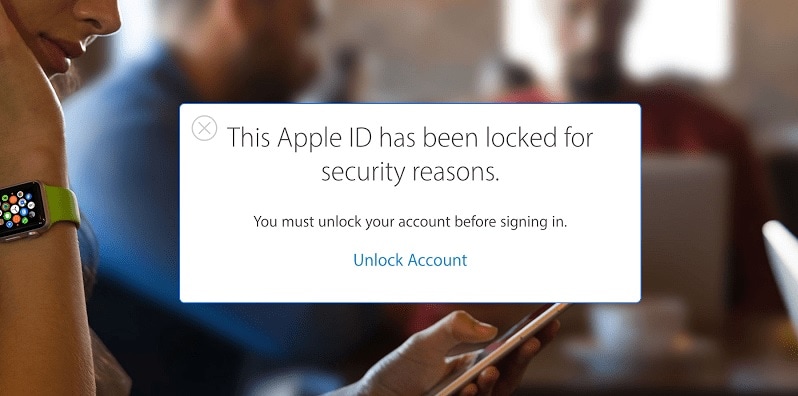
- Security Concerns: Apple takes security seriously. If Apple suspects unauthorized access to your account, they may deactivate it to protect your data.
- **Failed Login Attempts.**Repeated unsuccessful login attempts can trigger Apple’s security measures, whether by you or a potential attacker. It can result in your ID being disabled.
- **Payment Issues.**If there are problems with your payment method, Apple may disable your ID to prevent unpaid charges.
- **Violation of Apple’s Terms of Service.**Any breach of Apple’s terms and conditions can lead to your Apple ID being disabled. These include using unauthorized software or services.
- **Age Restriction Violations.**Apple may disable the account to comply with legal requirements. It triggers if a user under the age of 13 tries to create an Apple ID or access certain features.
- **Unusual Account Activity.**Suspicious activity, such as a sudden change in location, can result in an Apple ID lockout. It can also happen during unusual sale patterns or many login attempts from different locations.
Apple’s reputation for strong security measures is a significant reason for its popularity. The company uses robust encryption, 2-FA, and software updates to protect user data. Users trust Apple to safeguard their personal information. So, it’s essential to maintain a secure Apple ID to enjoy their services and have peace of mind.
Part II. 5 Basic Ways of Unlocking Your Apple ID
Unlocking your Apple ID is crucial to regain access to your valuable data. Here are five basic ways to unlock your Apple ID:
Contacting Apple’s Official Support
Contacting Apple’s official support is often the most reliable solution. Visit the Apple Support website or use the Apple Support app on your device. Apple’s support team can guide you through unlocking your Apple ID, ensuring it’s done right.
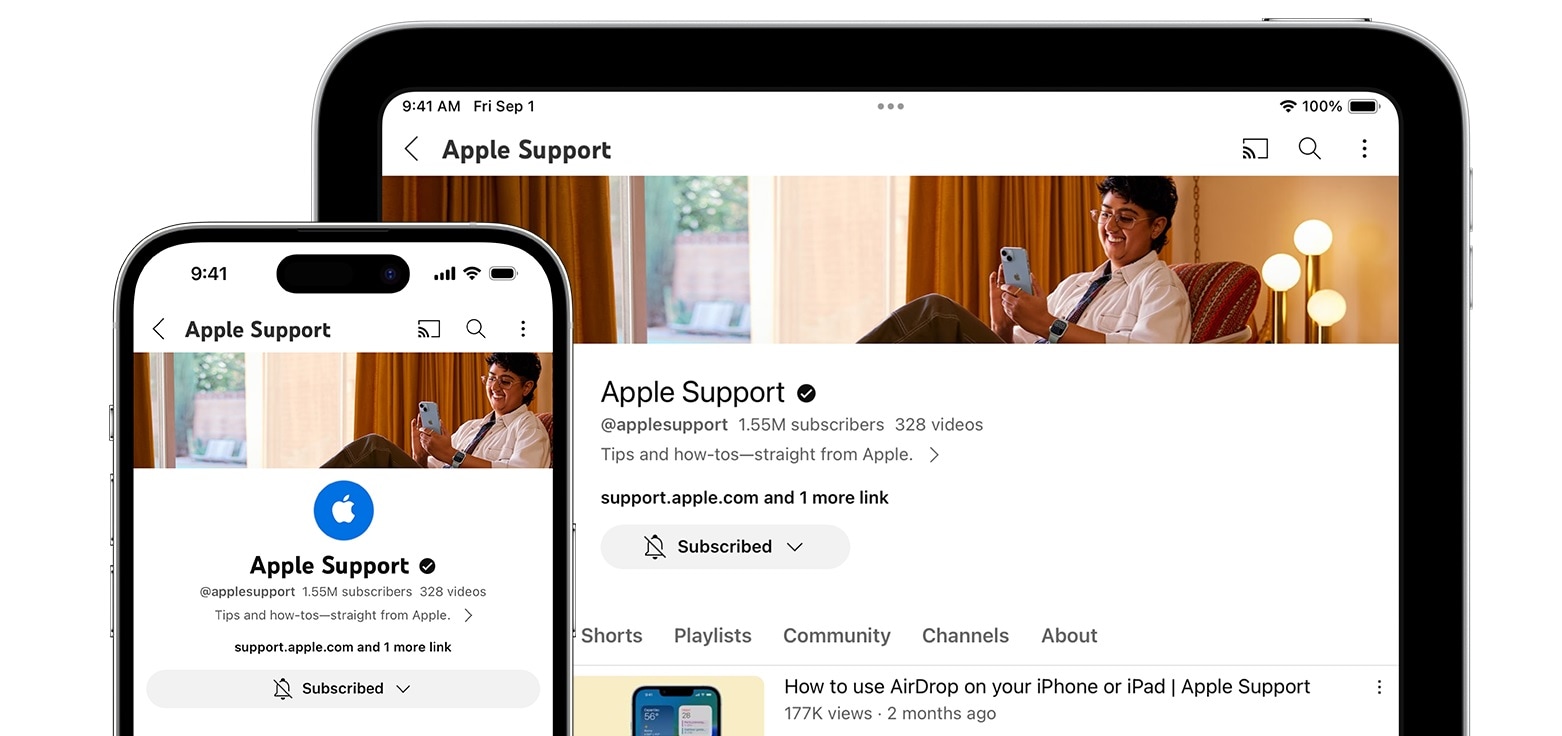
Account Recovery (iForgot)
Visit iforgot.apple.com, where you can initiate the account recovery process. Once on the website, you’ll have to enter your Apple ID. Next, you can choose how to reset your password or verify your identity through email. You can also answer security questions you’ve set up or verify through a trusted device.
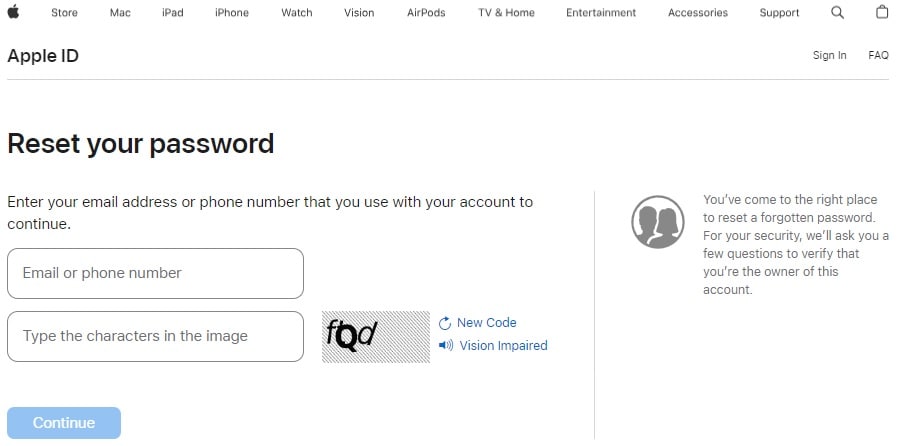
Two-Factor Authentication
If you have two-factor authentication enabled for your Apple ID, you can use your trusted device or the recovery key to unlock your account. Here’s how.
- Step 1: On your Apple iPhone 13, go to Settings. Next**,** tap on your name at the top. Tap Password & Security > Account Recovery > Recovery Key.
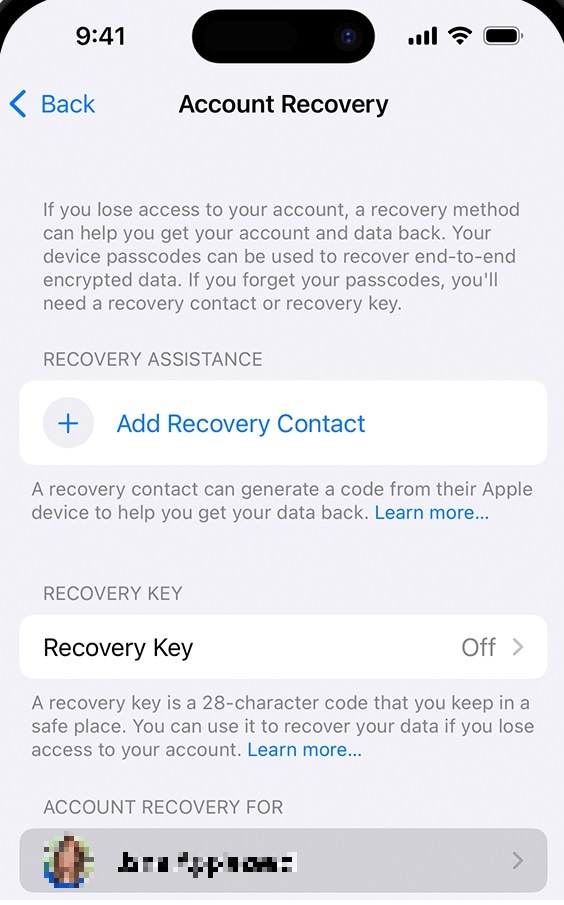
- Step 2: Turn on Recovery Key and enter your passcode. Write down your recovery key and confirm by entering it once more. You can now unlock your Apple ID with the recovery key generated.
Note
If you lose your recovery key, Apple cannot help you regain access anymore. It means that you will lose your account or data as the recovery key acts as the final security line to recover your account.
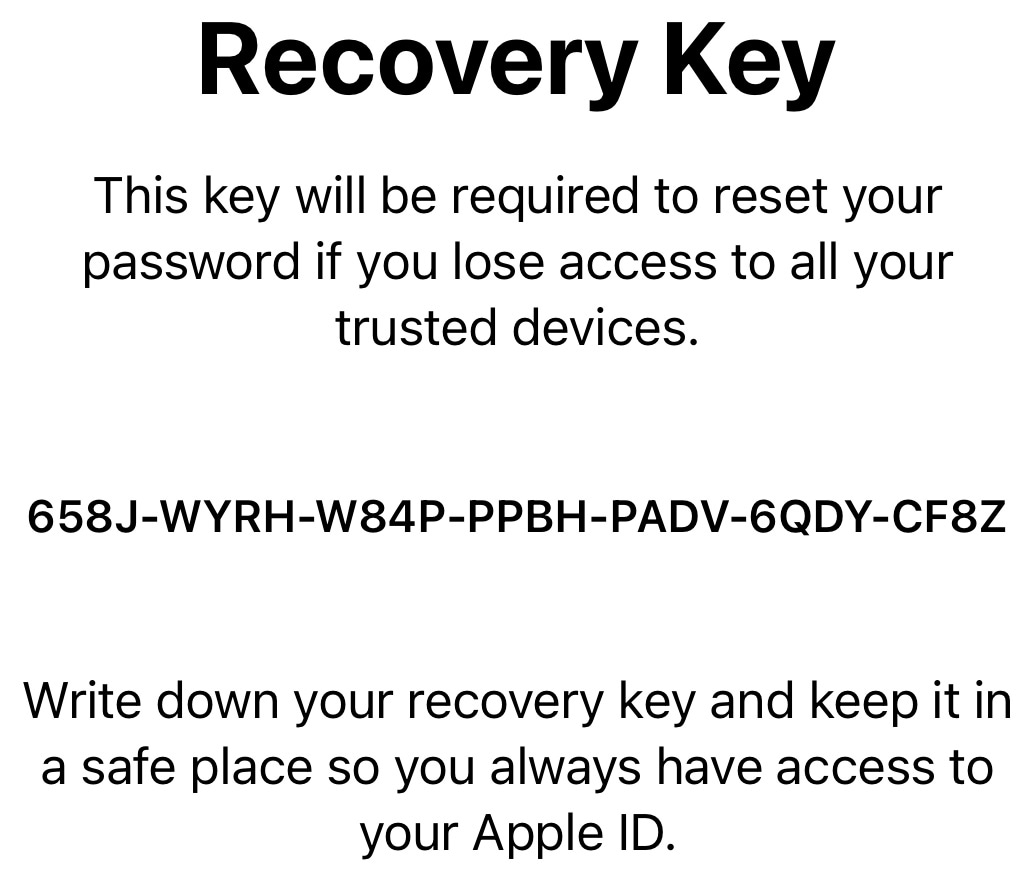
Reset Password
A simple solution to unlock your Apple ID is to reset your password. Here are the steps.
- Step 1: Go to Settings > Password & Security > Change Password on your device.
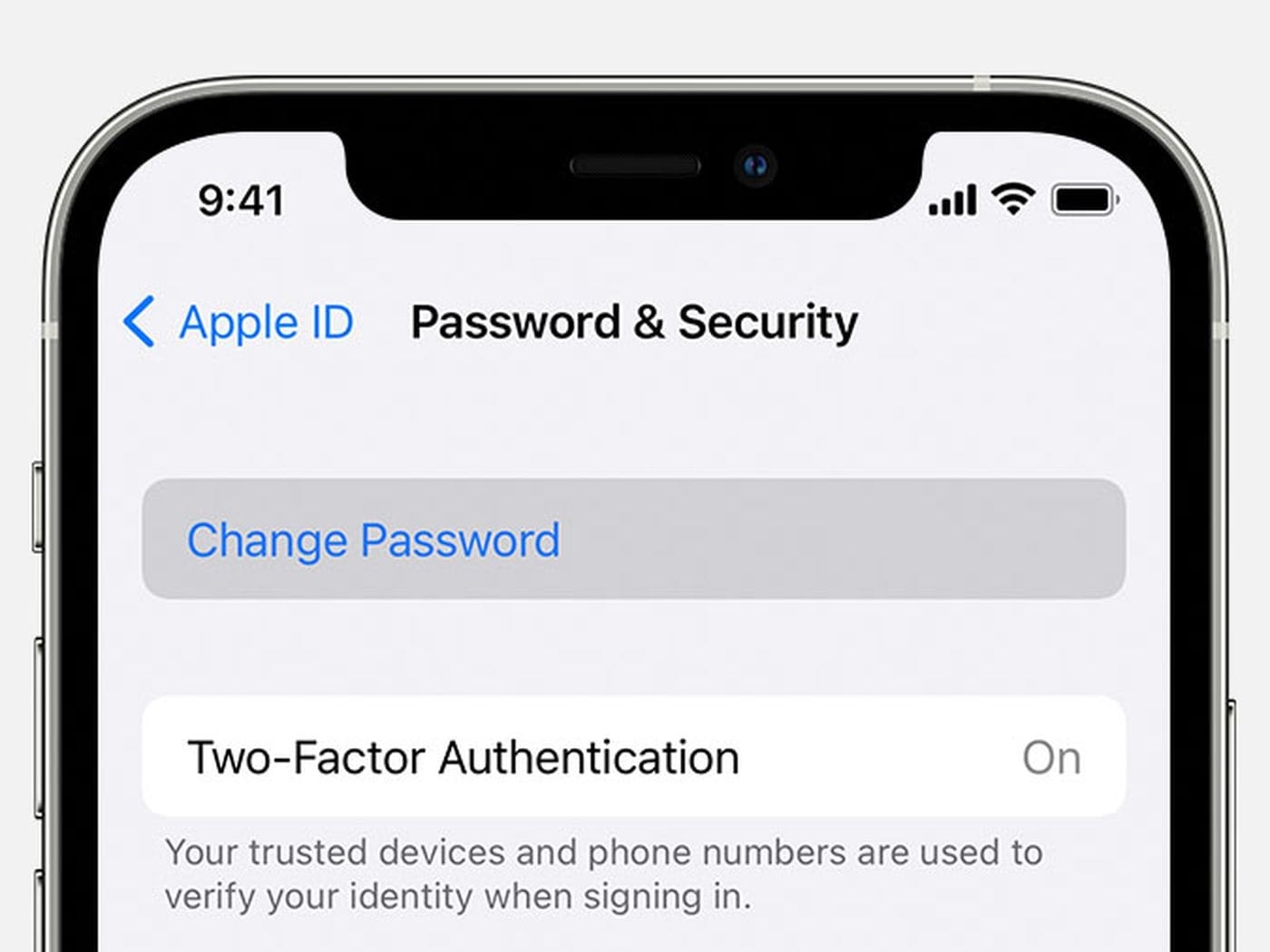
- Step 2: Enter your device passcode and follow the prompts to create a new password. Make sure it’s unique and secure to prevent future lockouts.
Email Verification
If you’ve forgotten your Apple ID password, you can initiate a password reset via email. Here’s how to do it on iPhone/iPad or Mac.
- On iPhone or iPad: On the Apple ID login screen, choose **Forgot password or don’t have an Apple ID?**Next, select Email authentication. You’ll receive an email with instructions to reset your password.
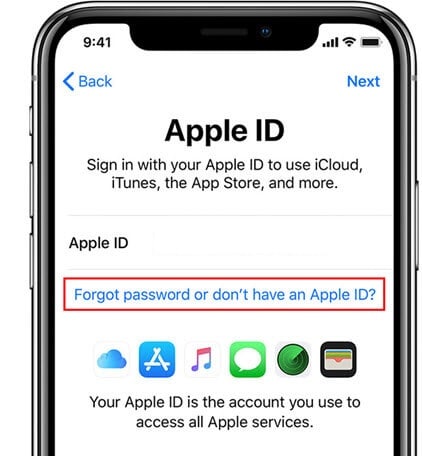
- On Mac: Choose the Applemenu and click System Settings. Click Sign in with your Apple ID > Forgot Apple ID or password? and follow the onscreen instructions.
While these methods should help you unlock your Apple ID, remember to keep your account secure to avoid future issues. If your issue persists after troubleshooting, then you may need an alternative solution. Dr.Fone - Screen Unlock, a trusted third-party solution, can resolve most Apple ID problems.
Part III. Unlock Your Apple ID With a Faster and More Flexible Solution
Unlocking your Apple ID is crucial to maintain your data. When traditional methods fail, Wondershare Dr.Fone - Screen Unlock offers a faster and more flexible solution. This reliable tool fixes most Apple ID issues with several benefits to boot.

Key Features
- Unlock Apple ID without a password. Fone Screen Unlock can unlock your Apple ID without requiring your password. The tool can be a lifesaver when all else seems to have failed.
- **Remove all types of screen locks.**Whether it’s a forgotten passcode, Touch, or Face ID, Dr.Fone can also remove all types of lock screens.
- **Compatible with the latest iOS.**Fone Screen Unlock is updated to stay compatible with the latest iOS and Apple devices. It ensures you can rely on it, regardless of your device’s model or software version.
In situations where traditional methods don’t work, Dr.Fone provides a solution to regain access to your Apple ID.
How To Unlock Disabled Apple ID Using Dr.Fone in 3 Steps
Unlocking a disabled Apple ID using Dr.Fone - Screen Unlock is straightforward. You can accomplish it by following three simple steps. Here’s how.
Step 1: Download Dr.Fone - Screen Unlock on your computer. Install the application and launch the software. Afterwards, select Screen Unlock from the main interface.
Step 2: In the next window, click Remove AppleID. Connect your Apple iPhone 13 to the computer using a USB cord and tap Trust on your Apple iPhone 13.
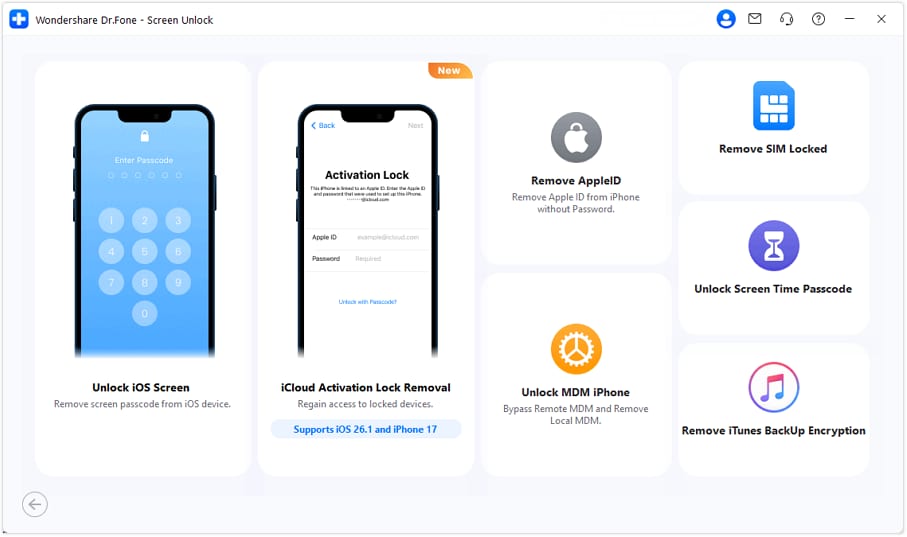
- Step 3: Follow the onscreen instructions, and let Dr.Fone - Screen Unlock process. It will unlock your disabled Apple ID without needing a password in minutes. When the process is complete, a notification on your screen will indicate that the Apple iPhone 13 device has been unlocked.

Bonus: Tips To Prevent Future Apple ID Lockouts
Preventing future Apple IDs from getting locked is essential to maintain access to Apple’s ecosystem. Here are some key tips to help you secure your account and avoid potential issues:

Use Strong Security Practices
Enable two-factor authentication for an extra layer of security. Use a complex and unique password. Use a mix of upper and lower-case letters, numbers, and symbols. Avoid using guessable information, like birthdays or common words.
Update Your Apple ID Information
Keep your contact information, recovery email, and security questions up to date. This ensures you can regain access if you forget your password or face account-related issues.
Check Your Account for Unusual Activities
Review your recent account activity. Look for unfamiliar devices or locations accessing your Apple ID. If you spot any suspicious actions, change your password and take necessary security measures.
Stay Informed About Apple’s Policies
Familiarize yourself with Apple’s terms of service and policies to avoid violating them. It will help prevent account disablement due to policy breaches.
Keep Your Payment Information Current
Ensure that your payment methods are up to date. Avoid any payment-related issues that might lead to your Apple ID being disabled.
Beware of Phishing Attempts
Be cautious of unsolicited emails, messages, or websites that request your Apple ID credentials. Always verify the authenticity of communication from Apple.
Secure Your Devices
Use a passcode, Touch ID, or Face ID to protect your Apple devices. It adds an extra layer of security to your account.
Conclusion
Safeguarding your Apple ID is important in maintaining access to Apple’s services. Knowing the common reasons for having an Apple ID locked situation is essential. By implementing strong security practices, you can prevent future lockouts. You should also monitor your account for unusual activities as an added measure.
However, consider using reliable third-party tools like Dr.Fone if all else fails. The platform works as a last resort or as a trusted companion to easily unlock your Apple ID. Prioritize your Apple ID’s security to enjoy the full benefits of the Apple ecosystem.
Also read:
- 'LA Noire': Long-Awaited Release for Personal Computers - Resolved Issue Announced
- [New] Become a Digital Native in the Metaverse Now
- [Updated] Investigating the Power of 4-Second YouTube Subscriptions for 2024
- [Updated] Overcoming Blackout Problems for a Clearer YouTube Experience
- Error Detection: Ideport0 Device Glitch
- How To Exit Recovery Mode on Apple iPhone 11? | Dr.fone
- How To Remove Phone Number From Your Apple ID from Your Apple iPhone X?
- In 2024, Everything To Know About Apple ID Password Requirements For iPhone 15 Plus
- In 2024, How To Change Your Apple iPhone 11 Pro Max Apple ID on MacBook
- In 2024, How To Create an Apple Developer Account From Apple iPhone 8 Plus
- In 2024, How To Delete iCloud Account Remove Your Apple ID Permanently From iPhone SE (2022)
- In 2024, How to Remove Apple ID from iPhone 14 Plus without Password?
- In 2024, IPhone+Android Discover the Top 10 Video-Making Picks
- In 2024, Mitigating Virtual Reality Nausea
- In 2024, Your Account Has Been Disabled in the App Store and iTunes On Apple iPhone 11 Pro?
- Optimizing Playback Speed with Professional Tactics
- Top-Notch Solutions for Disabled Apple ID From Apple iPhone 11 Pro Making It Possible
- Title: In 2024, Turning Off Two Factor Authentication From iPhone 13? 5 Tips You Must Know
- Author: Alma
- Created at : 2024-12-03 16:00:03
- Updated at : 2024-12-06 16:03:33
- Link: https://apple-account.techidaily.com/in-2024-turning-off-two-factor-authentication-from-iphone-13-5-tips-you-must-know-by-drfone-ios/
- License: This work is licensed under CC BY-NC-SA 4.0.